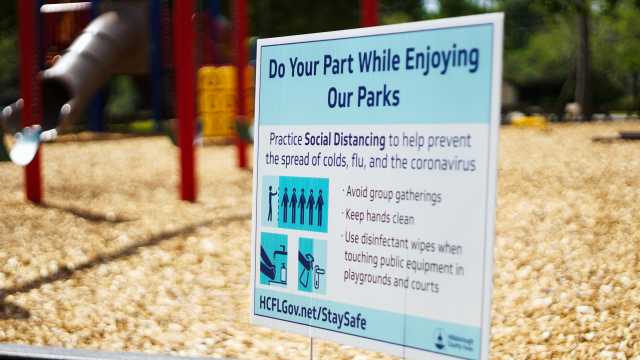Coronavirus
Don't let coronavirus throw your retirement plans out of whack.

R. Tyler End, CFP®
•
Published March 18th, 2020
Table of Contents
Key Takeaways
The stock market is going to stay volatile, but a risk-adjusted profile should withstand short-term ups and down.
Avoid travel for now, but start putting aside money for a big vacation next year.
Take steps to avoid catching coronavirus, and make sure your health insurance covers testing.
COVID-19, more colloquially known as the coronavirus, is the most serious global health crisis in years. The effects are wide-reaching, affecting stock markets, global imports and exports, healthcare, and even how we greet one another.
For pre-retirees, the coronavirus might be throwing a lot of long-held plans out of whack. All of a sudden, your retirement accounts are in flux, you’re unable to travel, and your health is at risk. In my work at Retirable, I talk to pre-retirees every day about their plans and hopes for retirement, and no one ever mentions facing down a global health crisis. But by taking some easy, actionable advice, you can protect yourself, wait out the crisis, and come out the other side with the happy retirement you planned for and deserve.
Coronavirus & your 401(k) and retirement accounts
Fears over the coronavirus have been rocking the stock market. In an emergency move, the Federal Reserve even cut rates by 0.5% in an attempt to stop the fall. It didn’t work: investors saw it as confirmation of their worst fears and stocks fell further.
While the stock market is unlikely to calm down in the next few months, the prognosis looks better if you look at the long-term. Ameriprise pulled the numbers and found that the market has a strong history of bouncing back after dips and periods of volitility. The big unknown is when, exactly, things will start to recover.
When it comes to your retirement accounts, however, the biggest piece of advice I can give you is stay the course. Market gains are still at a record high, and if you’ve been adjusting your asset allocation as you get closer to retirement, most of your money should be in lower volatility bonds. If you’re still a few years out from retirement, there’s no reason to panic.
If you’re looking to retire this year, remember that much of your money will still be in your investment accounts even when you do start taking distributions. That means there’s still time for your investments to recover as you’re drawing out of your accounts. A proper, risk-adjusted profile should be built to withstand short-term market volatility.
And don’t forget – Social Security, the backbone of your retirement income, is unaffected by stock market jumps.
Travel considerations for pre-retirees
Looking to travel across the United States or the world in your retirement? Might be better to stay home and check out some nature documentaries on Netflix. At this point, coronavirus is a truly global pandemic, with reports of cases across the U.S., Europe, and Asia.
Depending on where you live, you might be thinking that you have just as good a chance of catching coronavirus in your hometown as you do on the road, but traveling forces you into close proximity with thousands of other people, some of whom may be carrying the virus without realizing it. Right now, don’t take the chance.
In the short-term, take money that you had planned to use for travel and put it aside in a high-interest savings account (if you haven’t already). Use your time at home to plan your perfect trips, targeting sometime in late 2021, when there’s a better chance there will be a vaccine ready. You can also use this downtime to work on projects around the house, or to discover a new hobby.
Healthcare: does Medicare cover coronavirus?
For many pre-retirees in their 60s, the coronavirus won’t be much worse than a bad flu. But if you have respiratory or other health issues, you may be more susceptible to the coronavirus. Be aware of your own personal risk factors, and take the necessary precautions.
If you have private insurance, call the number on the back of your insurance card for more information about whether or not they cover coronavirus testing. Depending on where you live, fees for coronavirus testing may be waived, even if you’re uninsured. Look at your plan documents for more information about coverage for hospitalization and other medical services.
If you’re already on Medicare, the program has announced that the coronavirus test is covered under Medicare Part B. Most folks will pay nothing for the test. If you do have coronavirus, Medicare Part A will cover hospitalization costs, while Medicare Part B will cover medical procedures. Deductibles and coinsurance may apply – make sure you have some savings put aside for healthcare costs, ideally in a tax deductible HSA if you qualify.
Right now, it’s best to focus on not catching or spreading coronavirus. Wash your hands with soap and water, cover your mouth when you sneeze or cough, and stay home if you think you might be sick.
Social distancing
You might be hearing a lot about “social distancing” on the news. Experts are suggesting that folks avoid any social gathering that they can by working from home, not going to conferences or conventions, avoiding traveling, and so on and so forth.
“Social distancing” is also a topic that comes up in retirement planning, though usually not in the context of a pandemic. When you stop working, you’ll experience a natural drop in connectedness, as you lose the built-in social network from your job and career.
I often tell pre-retirees to be on the lookout for other ways to stay social, like hobbies, volunteering, local community centers, and part-time jobs. Unfortunately, in the face of a pandemic, these activities that will make you happier may also put your health at risk.
My suggestion is to look at digital options for staying social, like video chats, phone calls, and other activities. Check out tools like Zoom or Google Hangouts. Many group activities – like book clubs, happy hours, and more, can still be done over video chat. You can even use apps like Netflix Party to watch movies with friends.
Bottom Line
If you’re on the cusp of retirement, there’s a good chance you didn’t factor a global health crisis into your retirement plan. But you should feel comforted by the efforts going into containing the disease and developing a vaccine. The stock market is likely to stay volatile for some time, but unless something very serious happens, it will likely recover gains lost in this downturn. If you’re worried about your assets, chat with a Certified Financial Planner® today for guidance.
Share this advice

Tyler is a Certified Financial Planner® and CEO & Co-Founder at Retirable, the retirement peace of mind platform. Tyler has nearly 15 years of experience at leading companies in the wealth management and insurance industries. Before Retirable, Tyler worked as Head of Operations Expansion at PolicyGenius, expanding the company’s reach into new products — turning PolicyGenius into an industry-leading disability and P&C insurance distributor. Before working at PolicyGenius, Tyler worked as Wealth Management Advisor at prominent financial services organizations.
As an advisor, Tyler played an integral role in helping clients define goals, achieve financial independence and retire with peace of mind. Through this work, Tyler has helped hundreds of thousands of people get the financial planning and insurance advice they need to succeed. Since founding Retirable, Tyler’s innovative approach to retirement planning has been featured in publications such as Forbes, Fortune, U.S. News & World Report, and more.
Share this advice

Tyler is a Certified Financial Planner® and CEO & Co-Founder at Retirable, the retirement peace of mind platform. Tyler has nearly 15 years of experience at leading companies in the wealth management and insurance industries. Before Retirable, Tyler worked as Head of Operations Expansion at PolicyGenius, expanding the company’s reach into new products — turning PolicyGenius into an industry-leading disability and P&C insurance distributor. Before working at PolicyGenius, Tyler worked as Wealth Management Advisor at prominent financial services organizations.
As an advisor, Tyler played an integral role in helping clients define goals, achieve financial independence and retire with peace of mind. Through this work, Tyler has helped hundreds of thousands of people get the financial planning and insurance advice they need to succeed. Since founding Retirable, Tyler’s innovative approach to retirement planning has been featured in publications such as Forbes, Fortune, U.S. News & World Report, and more.


